NWLL Divisions
T-Ball (ages 5 & 6): Tuesday and Thursday from 6:00 to 7:30 p.m.
Boys and girls are introduced to the game of baseball/softball using basic rules and modified play to increase time with the ball. The ball is hit off a tee.
Every practice is evenly split between practice and a scrimmage.
SHOES WITH CLEATS ARE NOT PERMITTED.
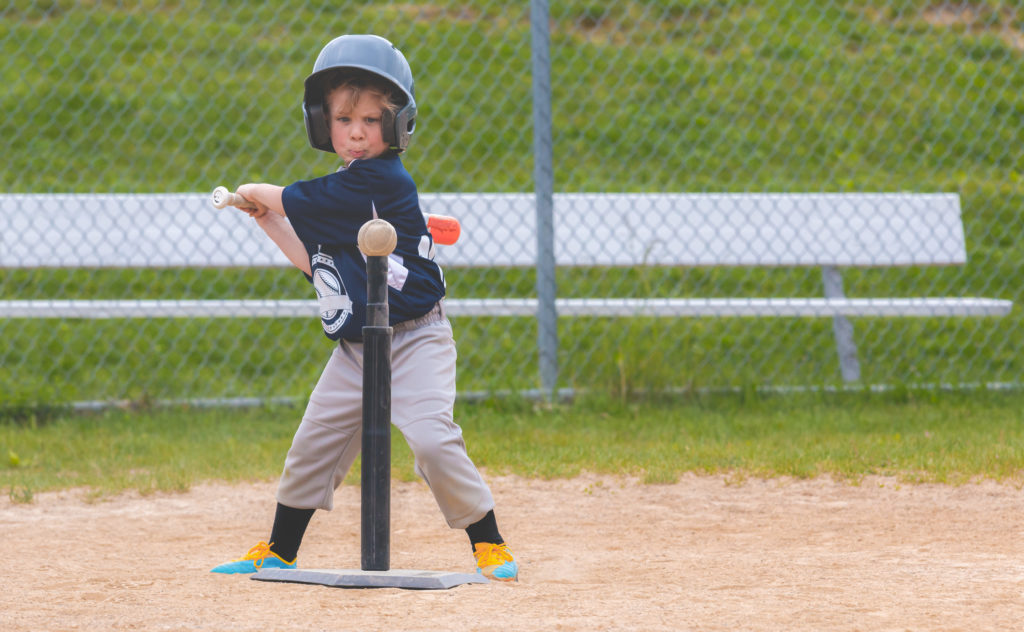
Coach Pitch (ages 7 & 8): Monday and Wednesday from 6:30 - 8:00 p.m.
Coaches pitch to players. A maximum of 7 pitches will be used for each player. Therefore the player has to try to make contact with the ball. If a player does not hit the ball after 7 pitches, they shall be called out. Stealing bases and bunting will NOT BE PERMITTED. Runners cannot advance once an infielder is in control of the ball. All basic little league rules will apply. Players will continue to develop their fundamental skills and learn the rules of baseball. A ‘volunteer’ umpire is introduced using a liberal strike zone. There will only be a maximum of 5 runs per inning.
Each practice is evenly split between practice and a short game.
SHOES WITH CLEATS ARE NOT PERMITTED.
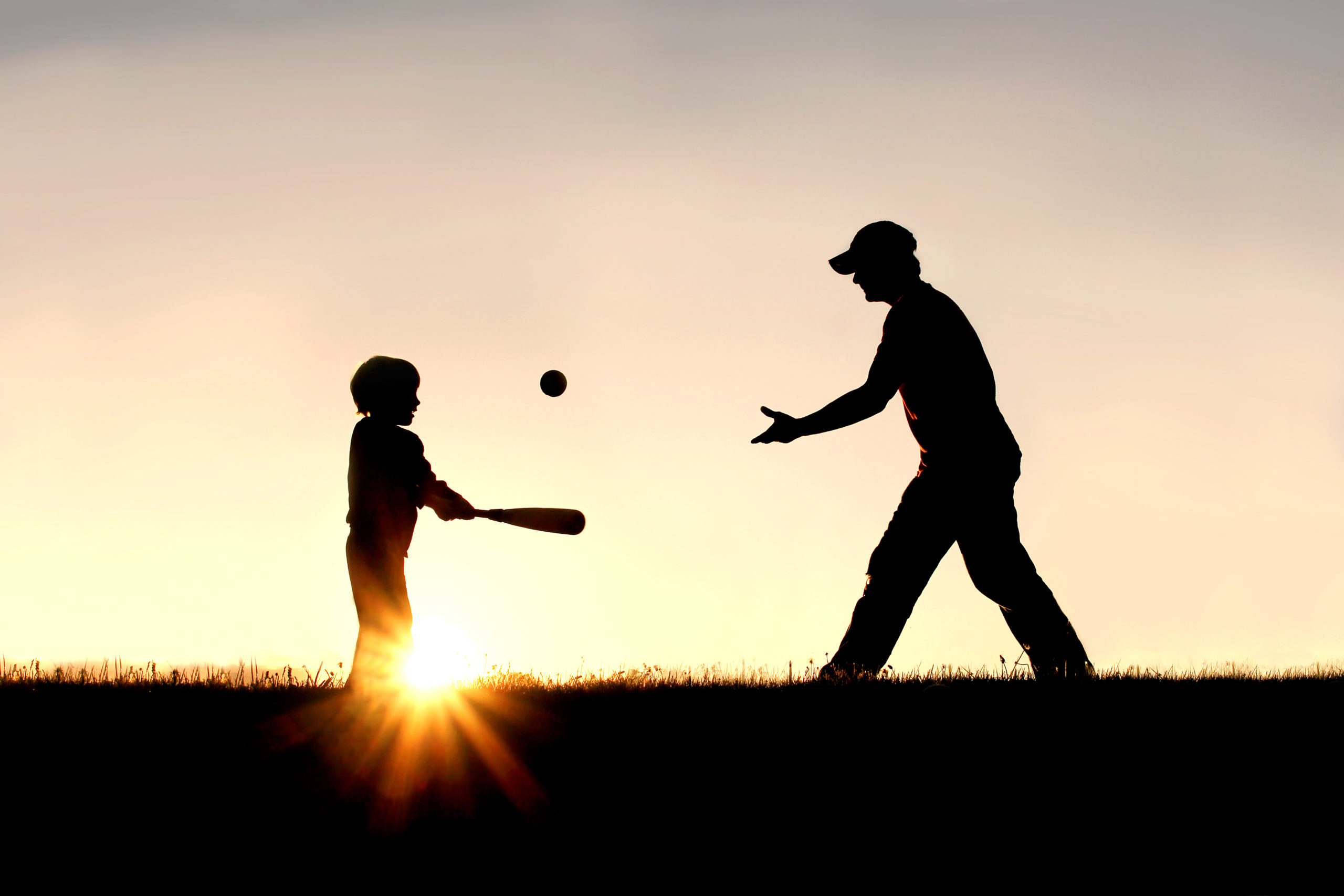
Minors (ages 9 & 10): Tuesday and Thursday from 6:30 - 8:30 p.m.
At this level, pitching by the players becomes part of the game and as many players as possible are encouraged to do so. At the minor league level, base stealing, sliding and bunting will also be introduced. Umpires in this division will allow a fairly liberal strike zone to encourage hitting. (Please note: while every effort will be made to supply registered umpires for the Minor games, if no umpires are available, coaches must pull volunteer parents to the umpire.) RUBBER CLEATS ARE OPTIONAL. All other little league rules apply. The object of the game is to get the ball into play as often as possible.
Attendance at the evaluation sessions is mandatory at this level.
Games will be scheduled on Tuesdays and Thursdays plus at least one practice per week.
This is the first age group that an All-Star team can continue with tournament play till the end of July.
Safety:
- all catcher masks must have a dangling throat protector
- on deck batter rule:
- Majors and lower: no on-deck batter (this includes the playing field and all areas outside the playing field).
- Between innings and before the game starts, the 1st batter can have a bat in hand.
Maximum runs:
- 5 run max and 10 runs max last inning
Timelines:
- No new inning starts after 8:15 PM
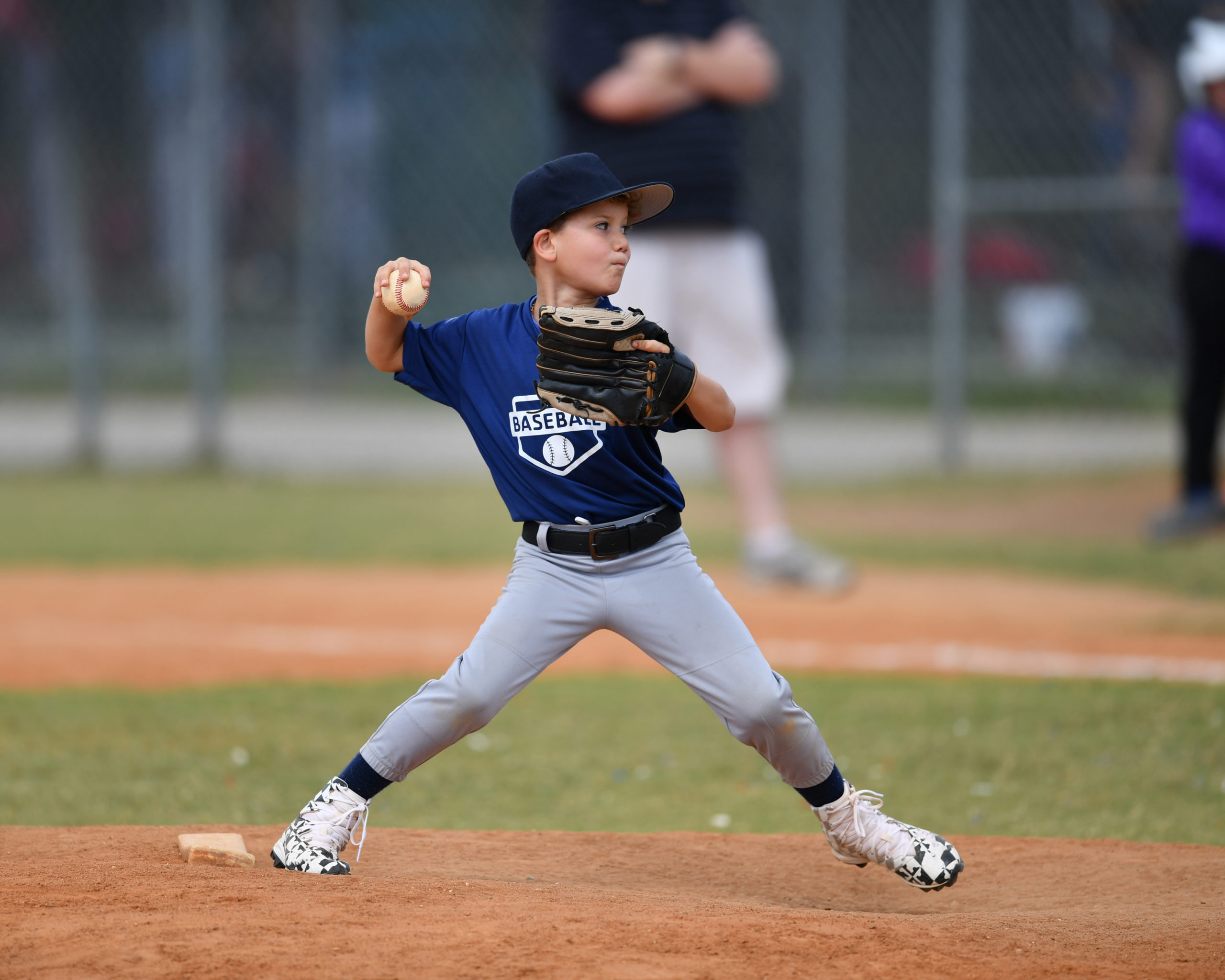
Majors (ages 11 & 12): Monday and Wednesday from 6:30 - 8:30 p.m.
This division uses advanced strategies and follows the rules and regulations of Little League precisely. There is an opportunity for players to tryout for an All-Star team at the end of the spring season to play in summer tournaments, which have the potential to lead to Prairie and Canadian Championships and possibly the Little League World Series.
Attendance at the evaluation sessions is mandatory at this level.
Games will be scheduled on Mondays and Wednesdays, plus at least one practice per week.
Majors Interlock for spring and summer combined! Find our more!
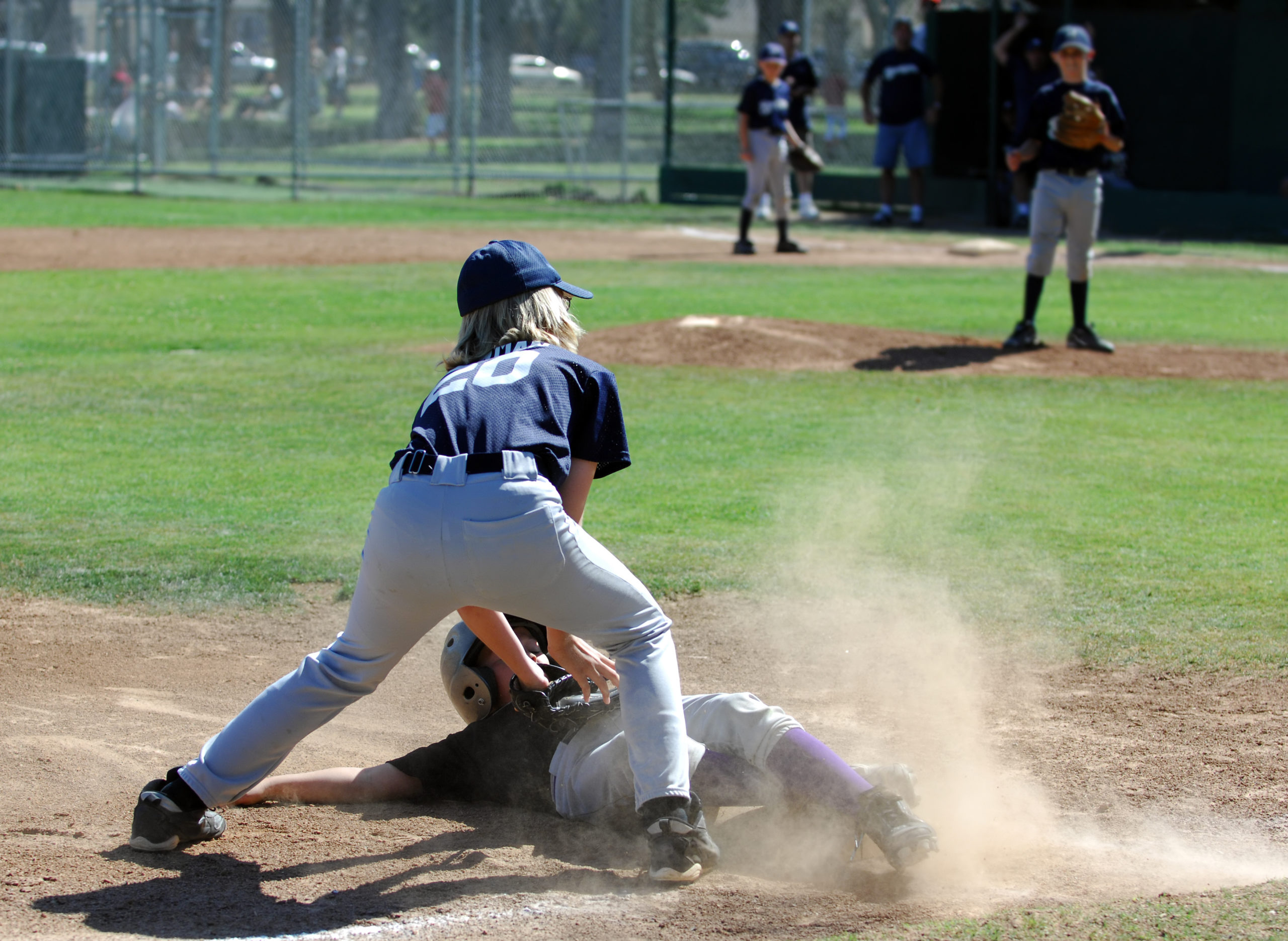
Intermediate (age 13)
Teams in this division are again evaluated for the purpose of drafting them onto teams. Depending on registration numbers, teams may be tiered based on skill level. The teams would then play seeding round, as part of the regular playing schedule, to determine the appropriate competitive level. Leading-off and larger diamonds are two of the biggest changes. Again, All-Star teams can continue with tournament play after the spring season ends. Intermediates play up to 3 games per week against other leagues in District 3 (North Calgary, Cochrane, Airdrie, Chestermere, Langdon, Banff). This schedule is variable and scheduled at the district level. Practices are set by coaches.
Attendance at the evaluation sessions is mandatory at this level.
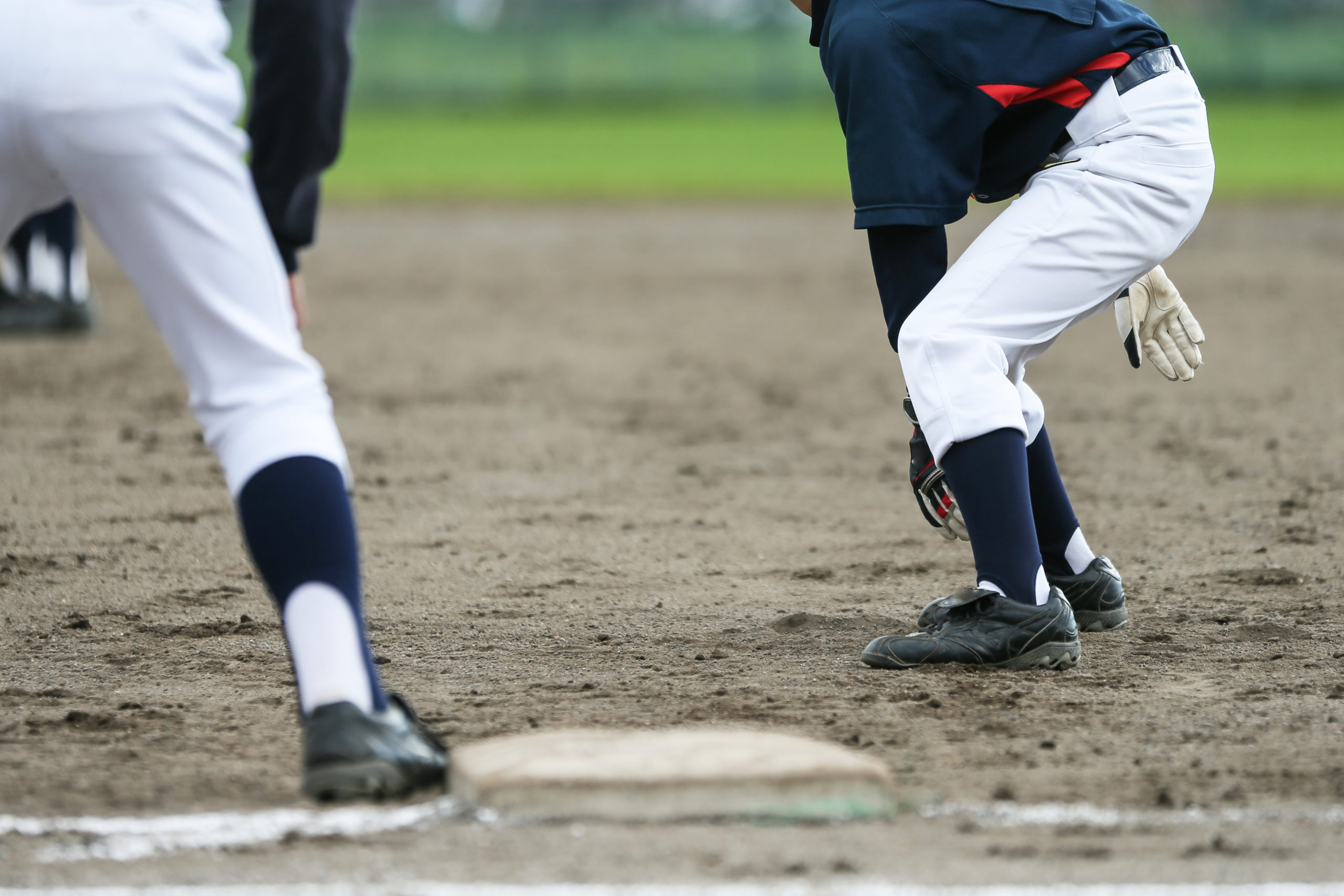
Junior (age 14)
Teams in this division are again evaluated to draft them onto teams. Depending on registration numbers, teams may be tiered based on skill level. The teams would then play seeding round, as part of the regular playing schedule, to determine the appropriate competitive level. Juniors play on a larger diamond than Intermediate. Again, All-Star teams can continue with tournament play after the spring season ends. Juniors play up to 3 games per week against other leagues within District 3 (North Calgary, Cochrane, Airdrie, Chestermere, Langdon, Banff). This schedule is variable and scheduled at the district level. Practices are set by coaches.
Attendance at the evaluation sessions is mandatory at this level.
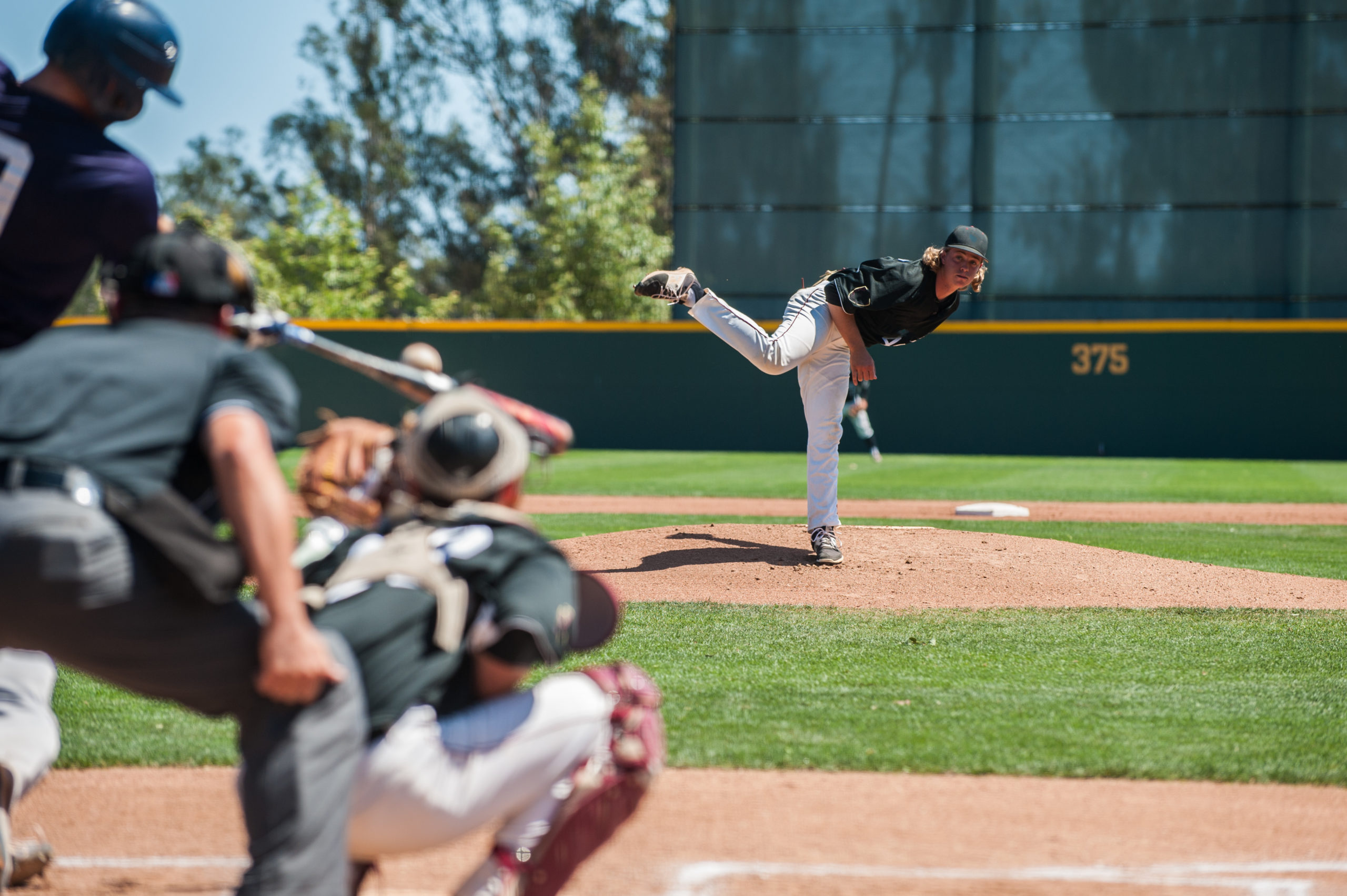
Senior (age 15 to 16)
NWLL works in conjunction with other District Leagues to evaluate and assign players to teams that reflect appropriate age and skill levels. Teams play up to 3 games per week in a competitive citywide schedule.
Attendance at the evaluation sessions is mandatory at this level.
Coaches will set practices; the Districts set the game schedule.
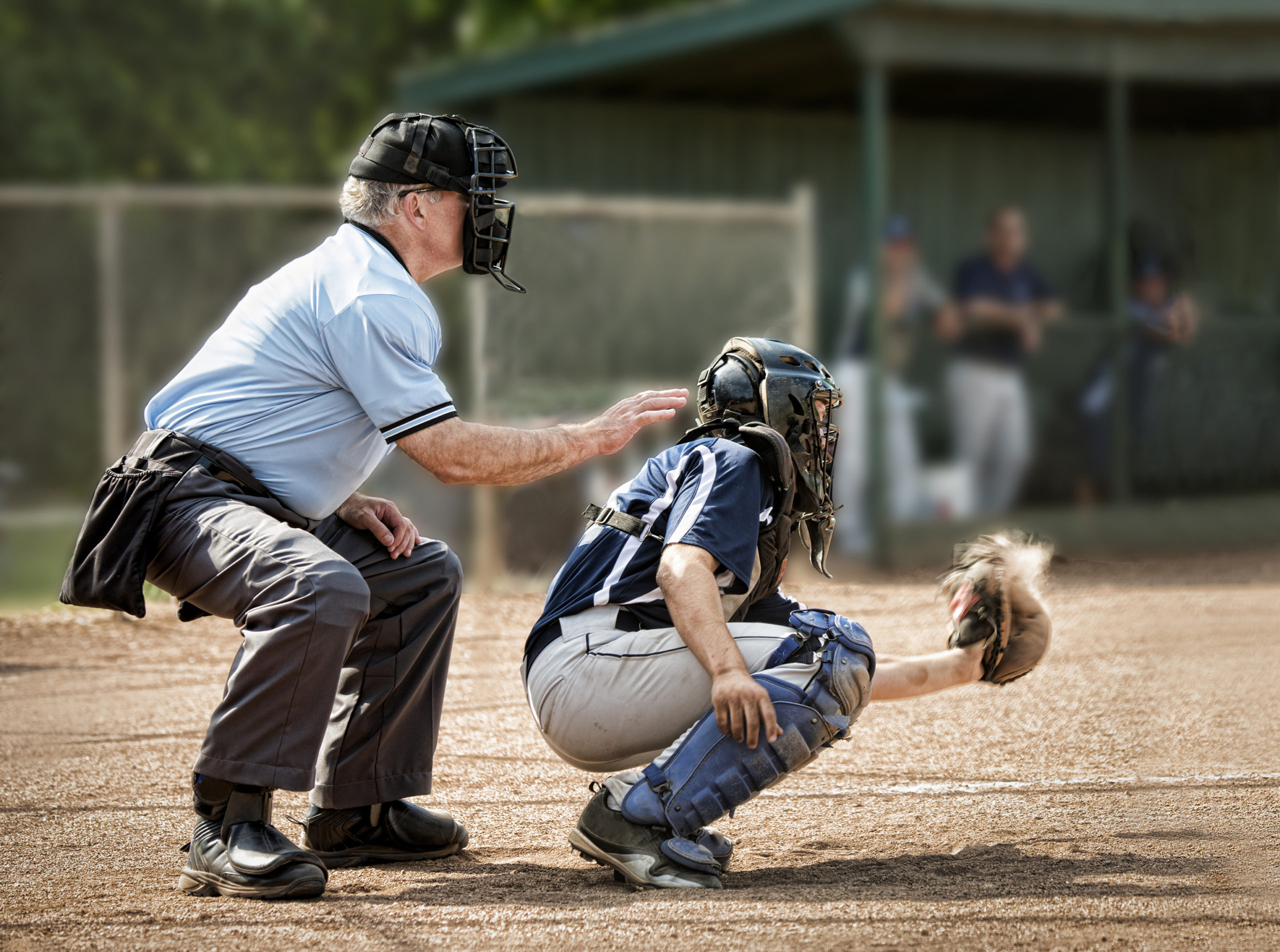
NWLL Division Movement Policy
NWLL receives many requests from parents, wanting their child to play up an age group.
NWLL subscribes to a philosophy of athlete development, a systematic approach to maximizing a participant’s involvement in our sport. This framework aims to define optimal training, competition and recovery throughout an athlete’s career to provide them with the opportunity to reach his/her full potential in baseball and as an athlete. Tailoring a child’s sports development to suit basic principles of growth and maturation enables them to reach their full potential and increase lifelong participation in baseball and other physical activities. Our model is consistent not only with the Little League player development model but also with Baseball Canada.
This model is divided into stages in which participants will move from simple to more complex skills. It is based on scientific research and focuses on common, key principles of individual development, which many sporting organizations consider to be best-practice.
Long-Term Athlete Development Stages
During the initial stages of our model, the emphasis is on physical literacy. Time is spent on learning the basics of athleticism (Agility, Balance, Coordination and Speed). This teaches the participants how to control their own bodies. In these stages, you may incorporate activities and drills which may not “look” relevant to baseball but are supporting the child’s development. During these initial stages, coaches’ also work on developing a participant’s Baseball IQ. Each year of participation from T-Ball through to the Senior program builds and adds to the child’s development and provides them the opportunity for life-long participation. Additional information regarding Long-Term Athlete Development Stages can be obtained at sportsforlife.ca web site.8 Key Factors For Long-Term Athlete Development Framework (LTAD)
- Awareness and First Involvement: To engage in sport and physical activity, individuals must know what opportunities exist. When they try an activity for the first time, the experience must be positive. That is why Sport for Life emphasizes the two stages of Awareness and First Involvement.
- Train to train: Athletes enter the Train to Train stage when they have developed proficiency in the athlete development performance components (physical, technical-tactical, mental, and emotional). Rapid physical growth, the development of sporting capability, and commitment occur in this stage. Athletes will generally specialize in one sport towards the end of the stage. A progression from local to provincial competition occurs over the course of the stage.
- Active Start: From 0-6 years, boys and girls need to be engaged in daily active play. Through play and movement, they develop fundamental movement skills and learn how to link them together. At this stage, developmentally appropriate activities will help participants feel competent and comfortable participating in various fun and challenging activities and games.
- Train to Compete: Athletes enter the Train to Train stage when they have developed proficiency in the athlete development performance components (physical, technical-tactical, mental, and emotional). Rapid physical growth, the development of sporting capability, and commitment occur in this stage. Athletes will generally specialize in one sport towards the end of the stage. A progression from local to provincial competition occurs over the course of the stage.
- FUNdamentals: In the FUNdamentals stage, participants develop fundamental movement skills in structured and unstructured play environments. The focus is on providing fun, inclusive, multisport, and developmentally appropriate sport and physical activity. These experiences will result in the participant developing a wide range of movement skills and the confidence and desire to participate.
- Train to Win: Athletes in the Train to Win stage are world-class competitors competing at the highest level of competition in the world (e.g. Olympics, Paralympics, World Championships, World Cups or top professional leagues). These athletes have highly personalized training and competition plans and have an Integrated Support Team of physical therapists, athletic therapists, and sports psychologists.
- Learn to Train: Once a wide range of fundamental movement skills has been acquired, participants progress into the Learn to Train stage leading to understanding basic rules, tactics, and strategy in games and refinement of sport-specific skills. There are opportunities to participate in multiple sports with competitions focused on skill development and retention. Games and activities are inclusive, fun, and skill-based. At the end of the Learn to Train stage, participants grow (or progress) towards sports excellence in the Train to Train stage or being Active for Life, either by being Competitive for Life or Fit for Life.
- Active for Life: Individuals who desire to be physically active are in the Active for Life stage. A participant may choose to be Competitive for Life or Fit for Life and, if inclined, give back as a sport or physical activity leader. Competitive for Life includes those who compete in any organized sport recreation leagues to Master Games. Fit for Life includes active people who participate in non-competitive physical activity.
As an association, we recognize the desires of both players and parents to be challenged. However, care and caution must be used in doing so as it is important to recognize players may be physically capable of advancing, but not socially or emotionally.
NWLL provides the opportunity for those players one (1) year under-aged (Coach Pitch and above ONLY) to play up an age-group. In doing so, the player is required to register in their age-appropriate league level. Once the evaluation schedule has been established, those wishing to be considered for a higher age group can contact the registrar and advise of this. They will be provided with the opportunity to attend the evaluations for consideration at a higher level. However, the player MUST attend a minimum of 2 of the higher-age evaluation sessions AND 1 of their age-specific evaluation sessions, if applicable.
Spring Minor, Major, Intermediate, Junior and Senior age division teams are established based on a draft system as per Little League standard practice. To be considered eligible for the draft, the one-year under-age player must evaluate higher than the 50th percentile for the age-group. At the draft, the head coaches must draft the age-appropriate eligible players first. Once all eligible age-division appropriate players have been drafted to a team, the eligible under-age players will then be considered for the draft to any remaining roster spots. Any undrafted under-age players will then be required to return to their age-specific division. Please note, any under-age players successfully drafted to play up during the spring season are not eligible to play Summer All-Star tournament baseball in the over-age division nor their age-specific division. Only those aged 10 drafted to Majors will be eligible to return to Minors for the All-Star team. This is based on Little League International tournament play rules.
If there are any fee differences between the original age group and the new age group, the player's family will be invoiced appropriately.
Two-year underage players are not considered eligible to play up, nor are players from T-Ball.
Friend requests are not accommodated at any draft-eligible division. One reciprocated friend request will be considered at the T-ball and Coach Pitch levels only, as indicated elsewhere on the NWLL web site.
